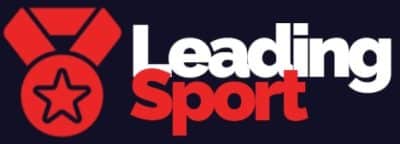Deploy Folding Table of contents
Sports sessions are often seen as an opportunity for physical activity and its associated health benefits. However, it is very important to remember that sports sessions also require recovery, in order to make the most of the session and avoid injury. Recovery is a complex process, with many factors that need to be taken into account. In this article, we’ll provide you with expert advice on how to recover effectively after a sports session, so that you can get the most out of your exercise.
Quick tips for post-sports recovery
The first step in recovering effectively after a sports session is to take the proper steps immediately following the session. This includes a combination of cooling down, stretching, and post-workout nutrition. Cooling down involves light aerobic exercise such as walking or cycling, to help bring your body back to its pre-exercise state. Stretching helps to avoid muscle tightness that can be caused by exercise, while post-workout nutrition helps to refuel your body and replenish any lost electrolytes.
Maximizing the benefits of your sports session
It’s also important to consider the other activities you can do to help you recover effectively. These include foam rolling, massage, and cold therapy. Foam rolling is an effective way to increase blood flow to a muscle, which can aid in reducing tension and inflammation. Massage helps to improve circulation, as well as reducing pain and tension in the muscles. Cold therapy, also known as cryotherapy, is a good way to reduce swelling and muscle soreness, as well as making muscles more flexible.
Unlocking the secrets to effective recovery
In addition to the steps mentioned above, there are other ways to maximize your recovery. These include using compression clothing and getting enough sleep. Compression clothing helps to improve circulation, reduce swelling, and reduce muscle soreness, while getting enough sleep helps to regulate your body’s natural healing processes. It’s important to get at least 7-9 hours of quality sleep every night to ensure effective recovery.
Understanding your body’s needs after a sports session
It’s essential to understand your body’s needs after a sports session, in order to maximize the benefits of your recovery. This includes hydration, nutrition, and rest. Hydration helps to replace lost fluids, while nutrition helps to replenish lost electrolytes and provide the body with the energy it needs. Rest helps to reduce muscle soreness and fatigue, as well as allowing the body to recover.
Recharging your muscles for the next session
Finally, it’s important to recharge your muscles for the next session. This includes eating a healthy, balanced diet and getting enough rest. Eating a healthy, balanced diet helps to provide your body with the nutrients it needs to recover, while getting enough rest helps to reduce muscle fatigue and soreness. Additionally, it’s important to keep up with your regular workout routine to ensure your body is prepared for your next session.
In conclusion, it’s essential to take the proper steps for effective post-sports recovery, in order to maximize the benefits of your exercise. Cool down, stretch, and refuel after your session, as well as using methods such as foam rolling, massage, and cold therapy. Additionally, stay hydrated and get enough rest and nutrition, as well as keeping up with your regular workout routine. Following these steps will help ensure that you get the most out of your sports session.
Sources
- Kraemer WJ, Ratamess NA. The physiological basis of strength and endurance training in sport. J Strength Cond Res. 2005 Mar;19(1):45-57.
- Gleim GW, McHugh MP. Flexibility and its effects on sports injury and performance. Sports Med. 1997 Aug;24(2):189-99.
- Kelly J, et al. Recovery strategies: nutrition, supplementation and other considerations. Sports Med. 2013 Mar;43(3):205-15.



